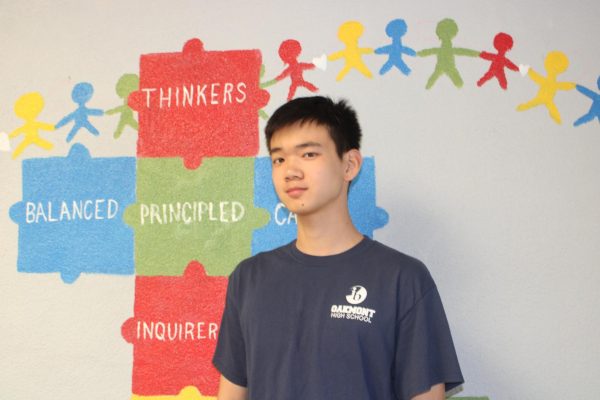A team of students ran a free week-long robotics camp at Oakmont this summer as a project for IB. The camp was organized by Oakmont seniors John Carlson, Tannishtha Mondal, Dylan Phan, Xavier Royer, and Dominic Siino.
This summer camp involved middle school students from across the Roseville area and ran from June 24 to June 28. Participants ranged from sixth graders to incoming ninth graders.
During the camp, the participants learned basic skills and worked in teams to develop competition robots. Over the first three days, the middle schoolers learned the basics of robotics in building, coding, and team management through stations and activities set up by the organizing team. Activities ranged from coding a robot to navigate a maze, to coding a robot to play red light green light. After learning these skills over the first three days, the participants worked in teams to build robots for a competition at the end of the week.
The organizers of the camp consisted of a team of IB and Robotics students at Oakmont.
Xavier Royer, a senior at Oakmont, was inspired to create this summer camp to promote STEM and robotics to the local community.
“As a middle schooler I lacked exposure and opportunity to [go to] such an event,” Royer said. “I created the camp imagining what a middle school version of me would’ve loved to have.”
The design of the camp had to be tailored to be at a level appropriate for the students. The team worked to prepare plans, activities, slides, and icebreakers for the attendees.
Tannishtha Mondal, a senior at Oakmont, was in charge of the administrative work and marketing for the camp. She explained that, aside from getting students exposed to STEM, another objective was to get potential Oakmont students acquainted with the Robotics program at Oakmont.
“There’s a lot of feeder schools around here,” Mondal said. “The objective [was] so that when they [the students] get to this campus and see that we have a Robotics Club, they aren’t scared away since they already have experience.”
Planning for the camp started early, back in January and February of 2024. To market the camp, the team reached out to all the middle schools in the area and researched what STEM programs they had.
Once registration opened, the team was surprised by the turnout of their marketing.
“We initially thought that since there were twenty-five seats, max twenty [sic] people would sign up,” Mondal said. “We did not expect so many kids signing up. We had the twenty-five slots filled up very quickly, and then I had to make a waitlist form.”
Dylan Phan, a senior at Oakmont, said that the project required not only extensive planning, but also improvisation and interpersonal skills.
“In many situations, not everything would go exactly as we planned,” Phan said. “We had to adjust our plans in order for it all to work out.”
Alexander Wurden, the Oakmont Robotics coach, was the supervisor for the camp.
“I didn’t organize this; the students did,” Wurden said. “I gave some guidance early on in the process but students took charge of everything, which was awesome. That’s what was especially cool about what they accomplished.”
This camp was organized as a CAS project for Oakmont’s International Baccalaureate diploma program. International Baccalaureate, or IB, is a program that involves college-level courses, similar to the Advanced Placement program.
Unlike AP, however, IB’s philosophy emphasizes critical thinking, interdisciplinary learning, and application in both local and global contexts, which is reflected in its use of community service projects and research papers.
IB Diploma students, in addition to taking IB classes and sitting for IB exams, are required to complete three core components. These are the Theory of Knowledge, the Extended Essay, a research paper on an area of the student’s choice, and CAS. CAS, which stands for Creativity, Activity, and Service, involves students participating in activities that reflect these three concepts, allowing students to learn through experience.
“The program’s focus is not so much on the content, but how you can solve problems,” Mondal said. “So when you get out there, you could embody more than just a person who just absorbs information.”









